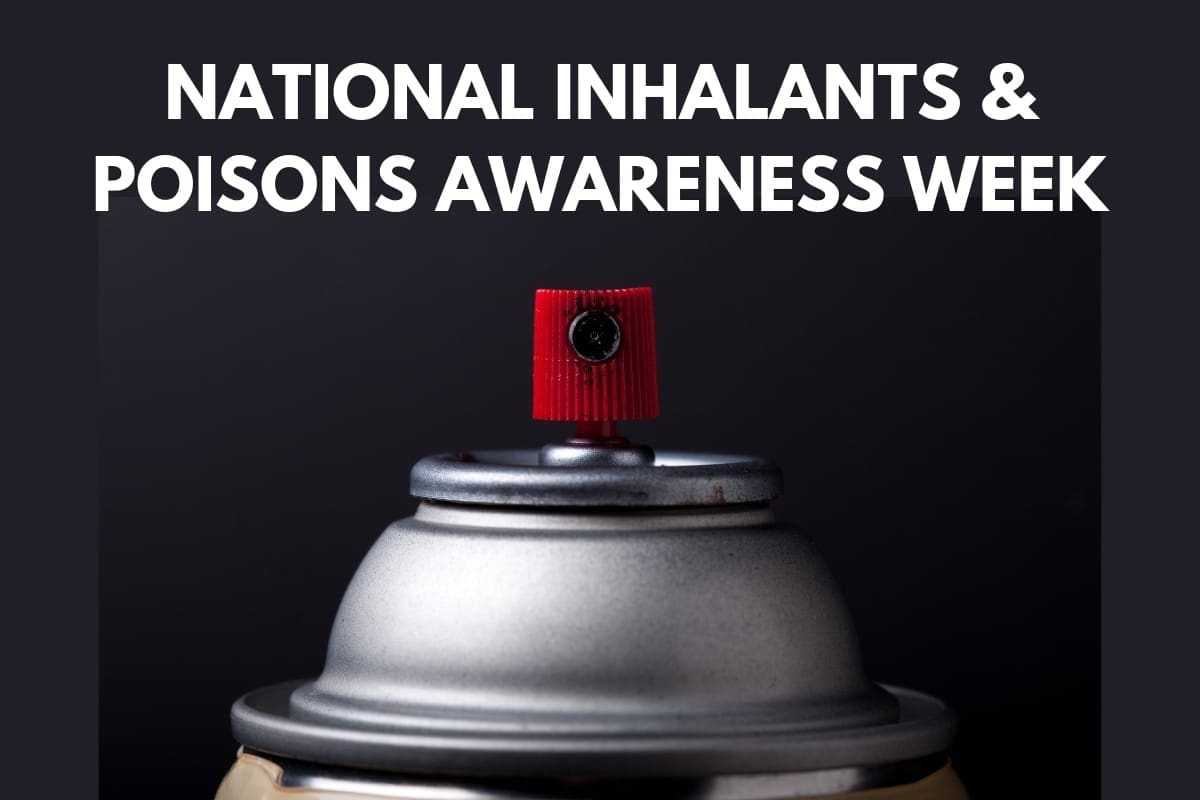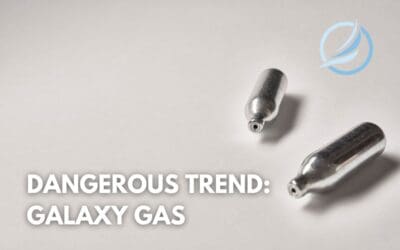National Inhalant & Poisons Awareness Week is recognized the third week in March each year. In 2021, this campaign falls on March 15-21. It was created by the National Inhalant Prevention Coalition to educate the public about the dangers of inhalants and to highlight just how commonplace these chemicals are–many of which can be found in the average household. Inhalant abuse is a form of substance abuse that can lead to that can result in irreversible and sometimes fatal health effects as well as addiction, withdrawal, and overdose.
Inhalants: Definition & How They Work
Inhalants are chemicals and substances that produce breathable vapors which have psychoactive, mood-altering effects similar to the effects of alcohol or benzos. They are incredibly fast-acting drugs; within a few seconds of being inhaled (either through the nose or mouth) these chemical vapors go to the lungs where they are quickly absorbed into the bloodstream and make their way to the brain. Here, they act as a CNS (central nervous system) depressant and can impair respiratory and cardiovascular functions to a deadly degree. Many are extremely toxic which can result in long-lasting and irreversible damage to the brain and bodily functions.
What Do Inhalants Feel Like?
An inhalant “high” usually involves a feeling of euphoria along with reduced inhibition, dizziness, and loss of coordination. These effects rarely last more than a few minutes, however, abusers sustain their high for hours at a time through repeated inhalation. Using an inhalant even once can be fatal, and doing so repeatedly significantly increases the already high likelihood of death or other serious health consequences. Prolonged and chronic abuse can result in permanent brain damage that affects cognitive, motor, and mood-regulating abilities.
Types of Inhalants
There are hundreds of different types of inhalant drugs that vary in terms of their form, chemical makeup, and potency. Many of these are everyday household products that are readily available in stores. They are most often classified by the form in which they are found: volatile solvents, aerosols, gases, or nitrites. Certain types of inhalant drugs have specific street names associated with them.
- Volatile solvents: Includes the majority of inhalant drugs. These are liquids that evaporate at room temperature, many of which are cheap and widely available. These are products such as paint thinners, nail polish removers gasoline, glue, and felt-tip markers.
- Aerosols: Sprays that contain propellants and solvents (substances that can dissolve other substances). Spray paint is probably one of the most well-known, but others include innocuous items such as hairspray, aerosol deodorant, cooking oil sprays, or even fabric protector sprays.
- Gases: These are substances that exist as pure gas such as chloroform, halothane, and ether. Nitrous oxide, better known as “laughing gas”, is the most commonly abused type of gas inhalant. In addition to being used as a medical anesthetic, nitrous oxide can be found in everyday products such as whipped cream dispensers which is likely where it got its street name “whippets”. Other sources of inhalable gases include butane lighters, propane tanks, and helium balloons.
- Nitrates: A special class of inhalants that are primarily used for sexual enhancement rather than mood alteration. These include cyclohexyl nitryl, amyl nitrite, and butyl nitrite. They work by dilating blood vessels and causing muscle relaxation. Nitrates are commonly referred to as “poppers” or “snappers”.
Are Inhalants Addictive?
It’s rare, but yes inhalants can result in addiction. The chemicals in these substances activate the dopamine system which plays an integral role in the brain’s reward center. It is this activation that is the cornerstone in the development of an addiction to any substance. Compulsive, long-term, and chronic inhalant use can result in withdrawal effects which include nausea, difficulty sleeping, and mood swings. Far more worrisome, however, is the very real possibility of an inhalant overdose, which occurs with the first use.
Many of the chemicals in solvents and aerosol sprays are highly concentrated and can rapidly cause fatal interruption of breathing or heart functions known as “sudden sniffing death” syndrome. Other dangerous or lethal consequences of inhalant abuse include:
- Asphyxiation
- Suffocation
- Choking
- Seizures
- Coma
There is no “safe” amount of inhalant and no matter how healthy you may be, huffing or any other sort of inhalant use can quickly become deadly. Unfortunately, traditional drug testing does not detect inhalants so it’s not always easy to tell if someone is using inhalants or not. Health screenings by specialized medical professionals are one of the most reliable means for spotting the signs of inhalant abuse. If you suspect that a loved one might be using, our facility can help you identify the signs and get effective treatment as quickly as possible.
Sources:
https://www.ncbi.nlm.nih.gov/pmc/articles/PMC2948777/
https://d14rmgtrwzf5a.cloudfront.net/sites/default/files/inhalantsrrs.pdf
































